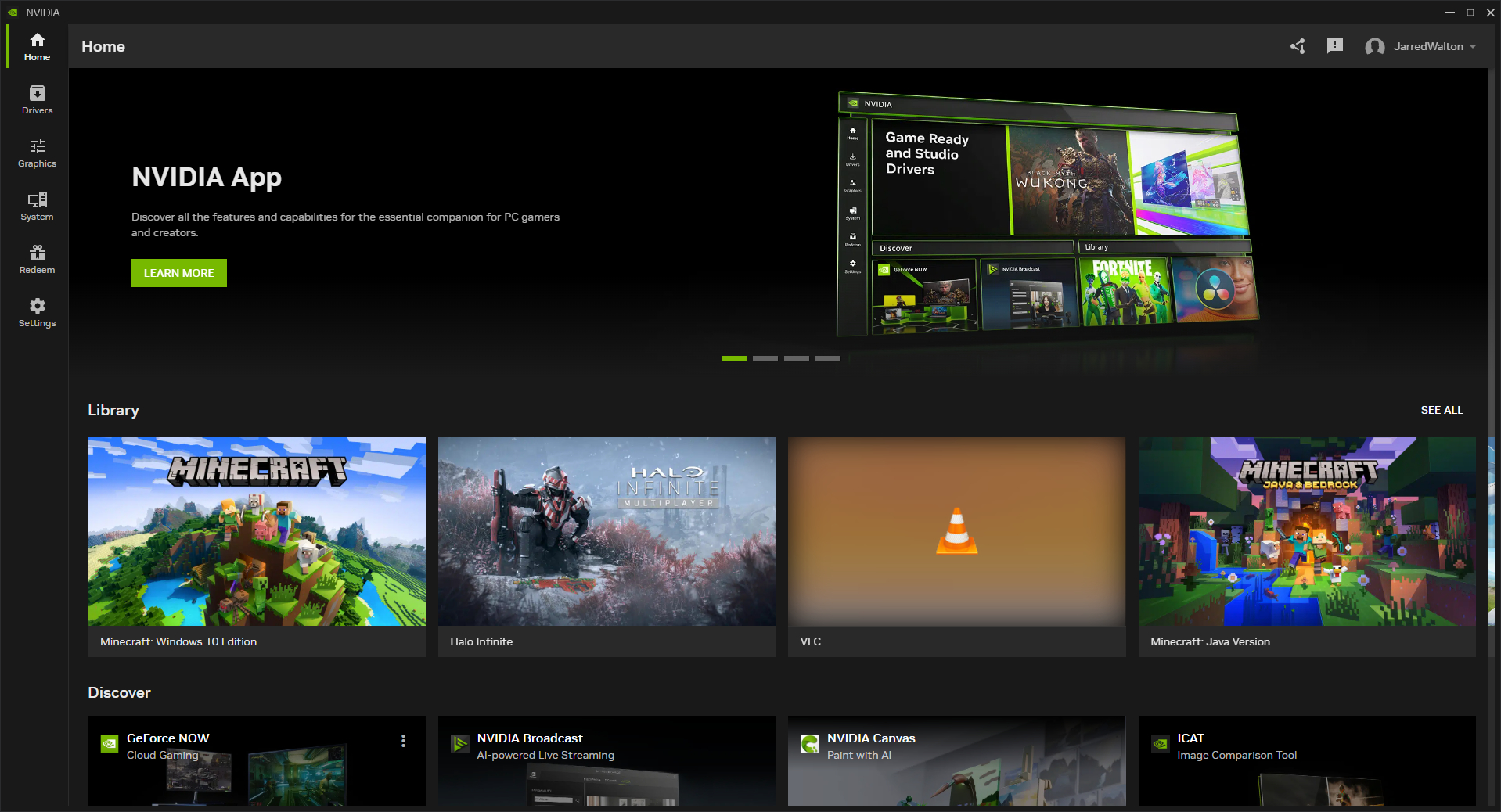
We've tested gaming performance with Nvidia's new 'Nvidia App,' which is installed by default with the driver package, and found that it reduces performance by up to 15% in some games.
Update: Nvidia sent us a statement: "We are aware of a reported performance issue related to Game Filters and are actively looking into it. You can turn off Game Filters from the NVIDIA App Settings > Features > Overlay > Game Filters and Photo Mode, and then relaunch your game."
We have tested this and confirmed that disabling the Game Filters and Photo Mode does indeed work. The problem appears to stem from the filters causing a performance loss, even when they're not being actively used. (With GeForce Experience, if you didn't have any game filters enabled, it didn't affect performance.) So, if you're only after the video capture features or game optimizations offered by the Nvidia App, you can get 'normal' performance by disabling the filters and photo modes.
When Nvidia rolled out its 566.14 drivers last month, it officially placed GeForce Experience (GFE) on legacy status. The first time you load GFE with 566.14, it will prompt you to update to the new Nvidia App. You could decline, but there will be no future updates to GFE. With the 566.36 drivers, Nvidia removed GFE completely and there's only the Nvidia App — or you can run without the extra features it provides and install the drivers only.
If you don't need the extra software, skipping the Nvidia App avoids such messiness, and it's why many people didn't install GeForce Experience either. We've confirmed reports around the web that the Nvidia App using the default settings can impact gaming performance, dropping framerates by up to 15% in some cases.
TOM'S HARDWARE AMD ZEN 5 PC
AMD Ryzen 7 9800X3D
Nvidia RTX 4060
ASRock Taichi X670E
G.Skill TridentZ5 Neo 2x16GB DDR5-6000 CL28
Crucial T700 4TB
Cooler Master ML280 Mirror
Corsair HX1500i
Windows 11 24H2
If it's not immediately clear, 15% is a massive performance drop caused by a driver or application update. To put it in perspective, the more expensive RTX 4060 Ti is only 18% faster than the base model RTX 4060, according to our GPU benchmarks, running both at 1080p medium settings. Thankfully, the performance decrease isn't universally 15%, but we tested with the 4060 and saw a 2–12 percent drop in framerates across the five games that we tested.
We used the numbers from our recent Intel Arc B580 review, then retested a handful of games after doing a clean driver install, without installing the Nvidia App as part of the package. The Nvidia App was initially running with the default settings (i.e., overlay enabled, but not actively using it).
Below are our updated testing results. Turning off the game filters but keeping the Nvidia App (and overlay) is in blue, running without the Nvidia App is in green, while the default (Nvidia App with filters and photo mode enabled) is in gray. Here's the rundown of performance.
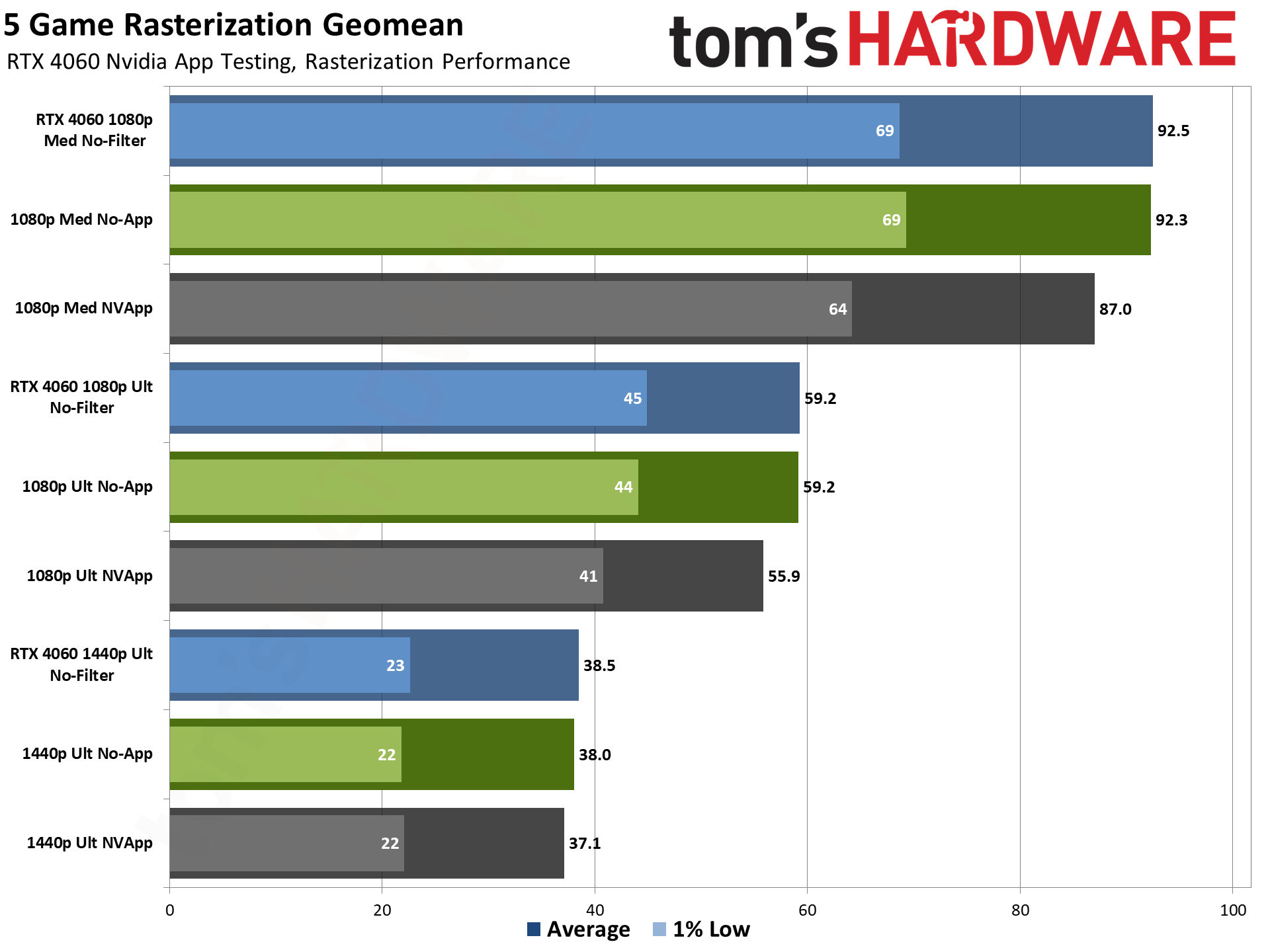
The overall chart shows that disabling the game filters or running without the Nvidia App results in effectively the same performance — within margin of error (less than a 1% difference). Using the default settings for the Nvidia App, however, drops performance about 6% at 1080p, and 2.5% at 1440p. The amount of impact varies by game, naturally.
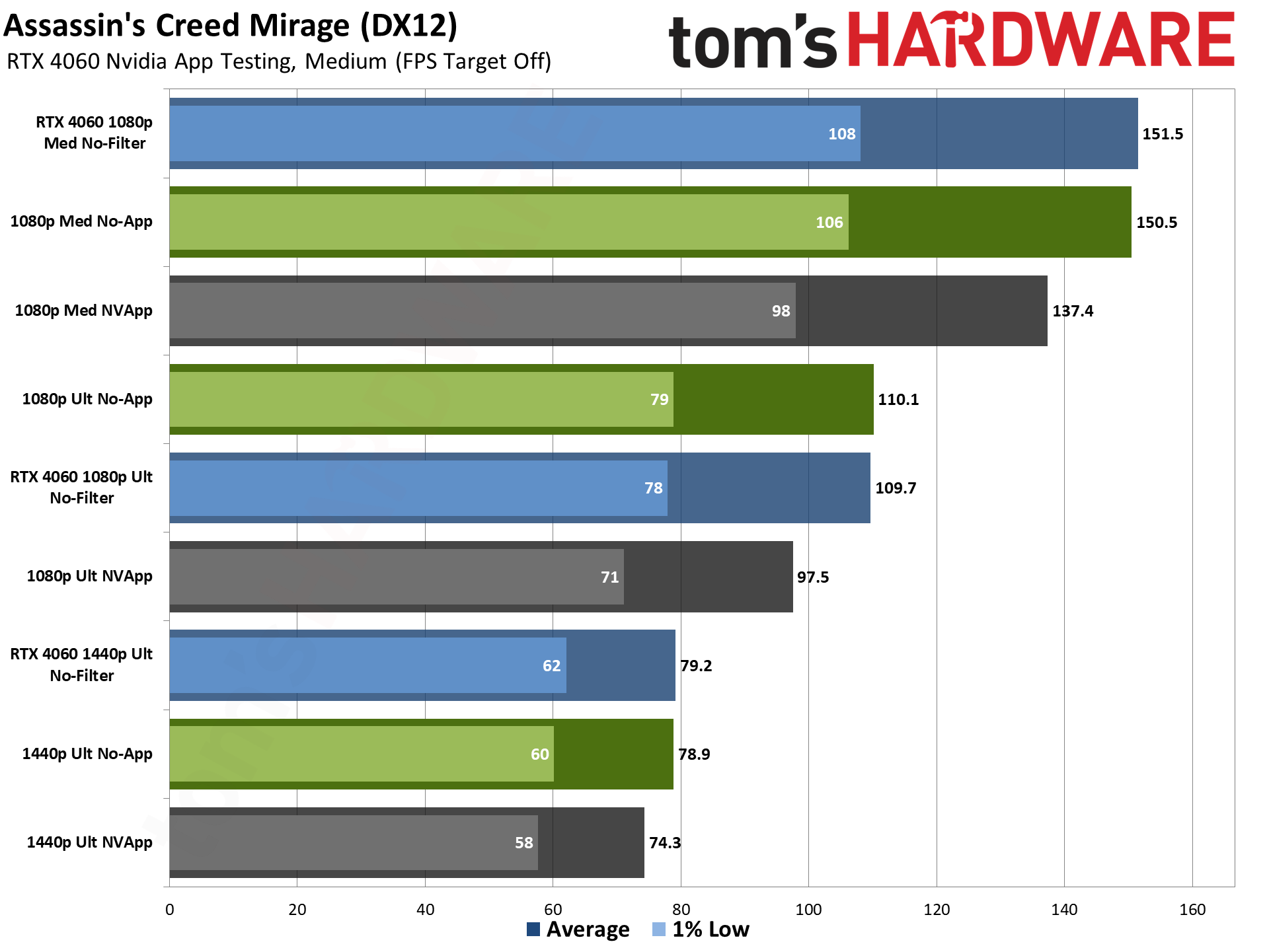
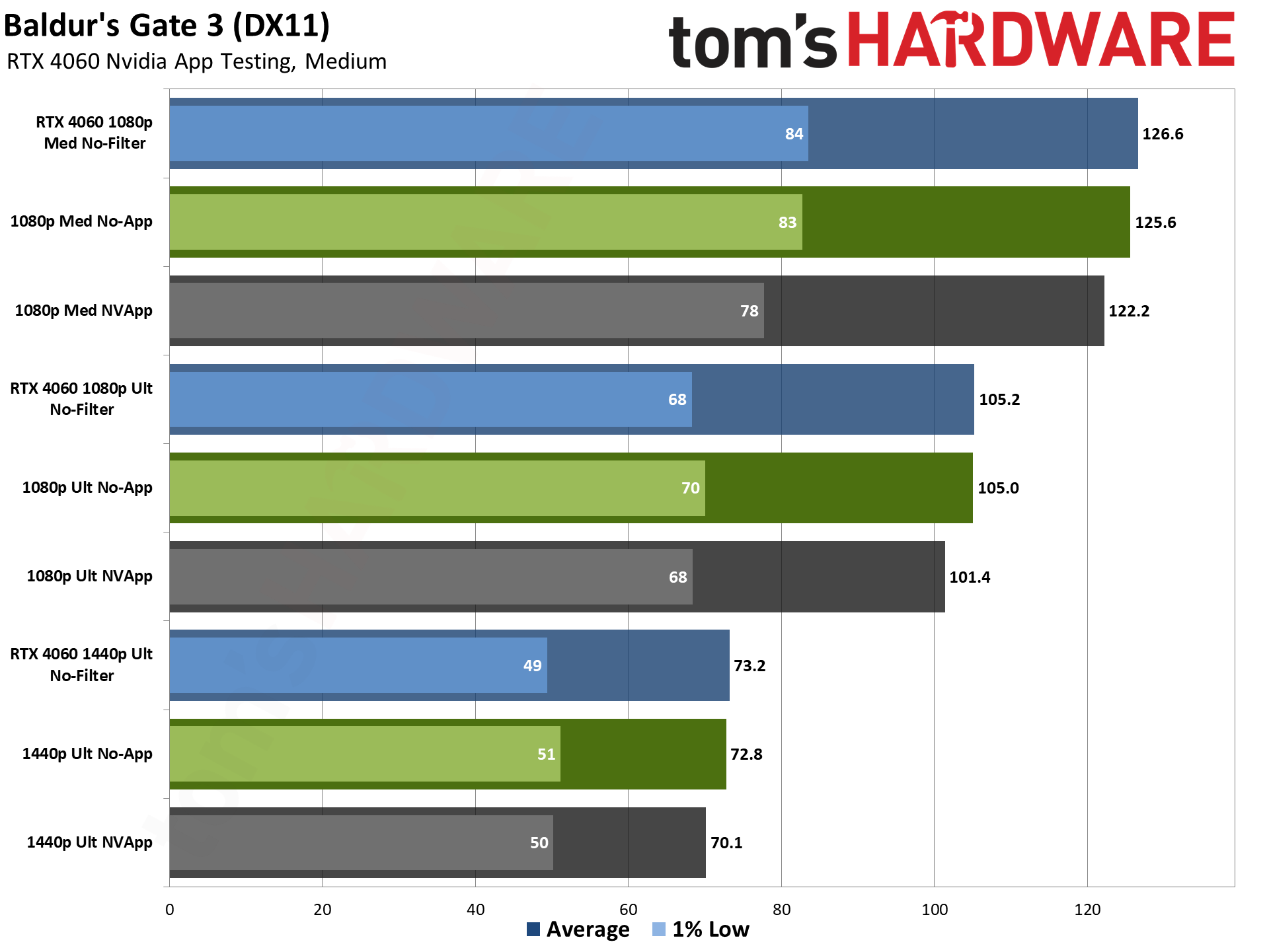
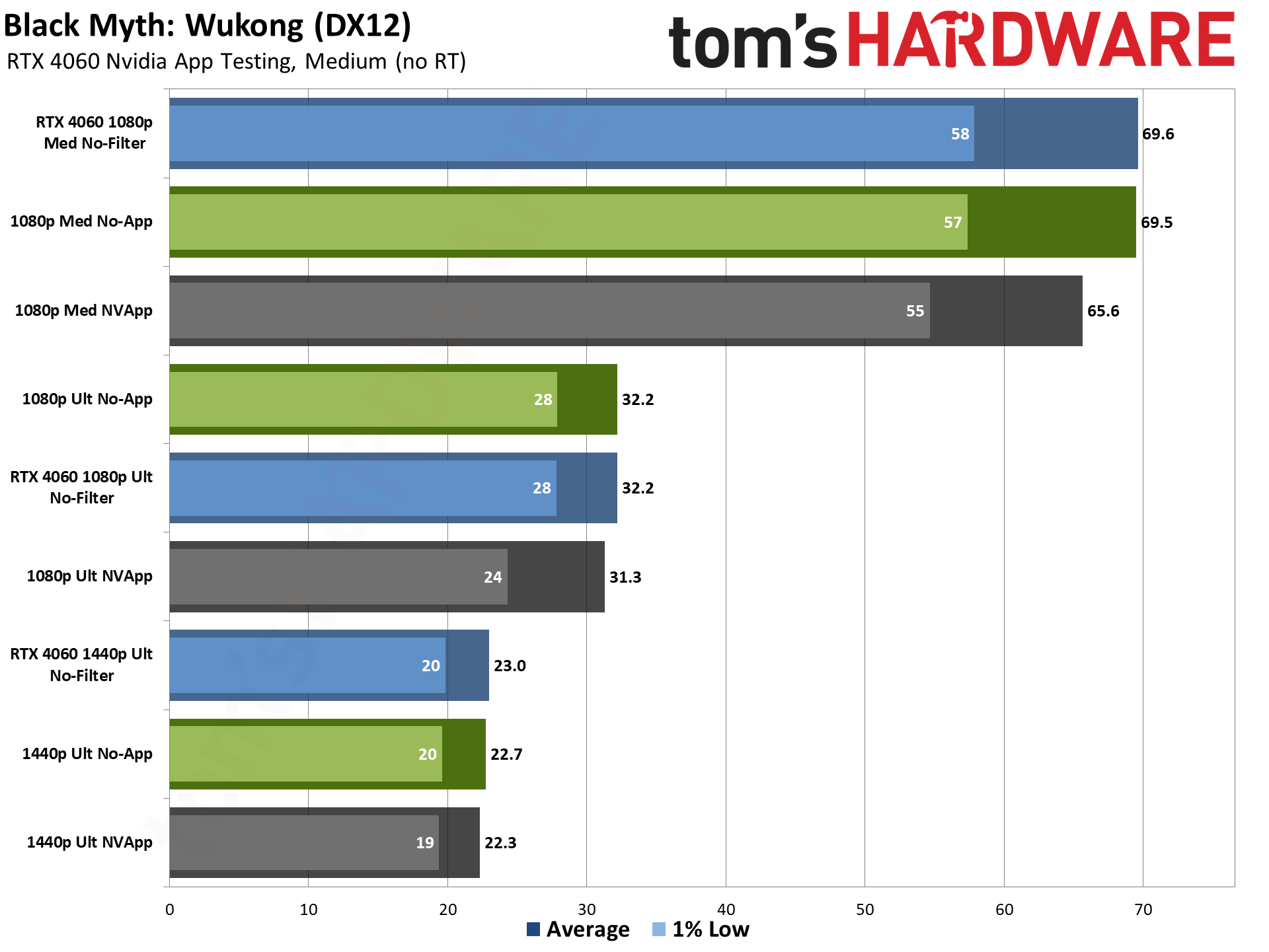
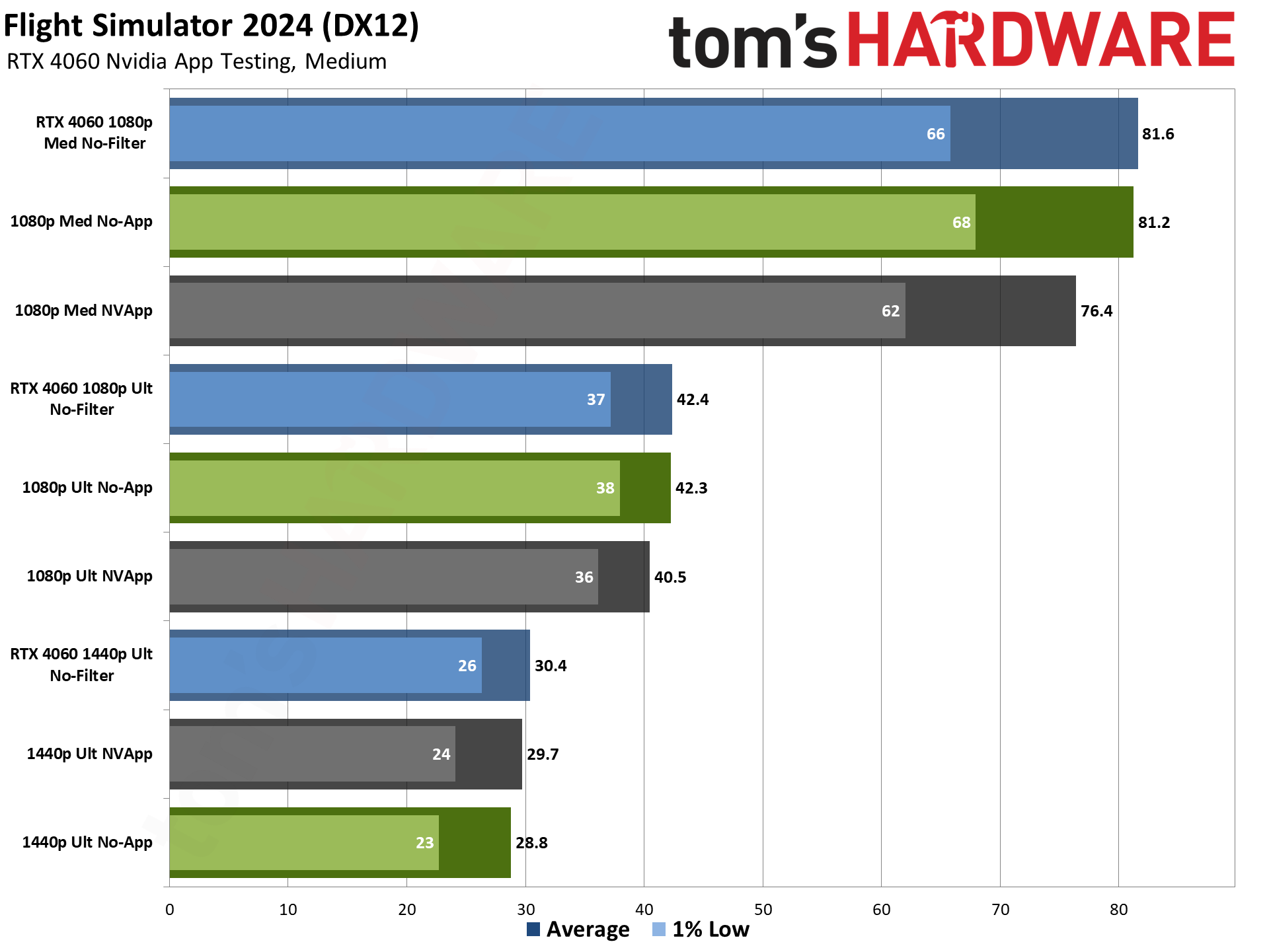
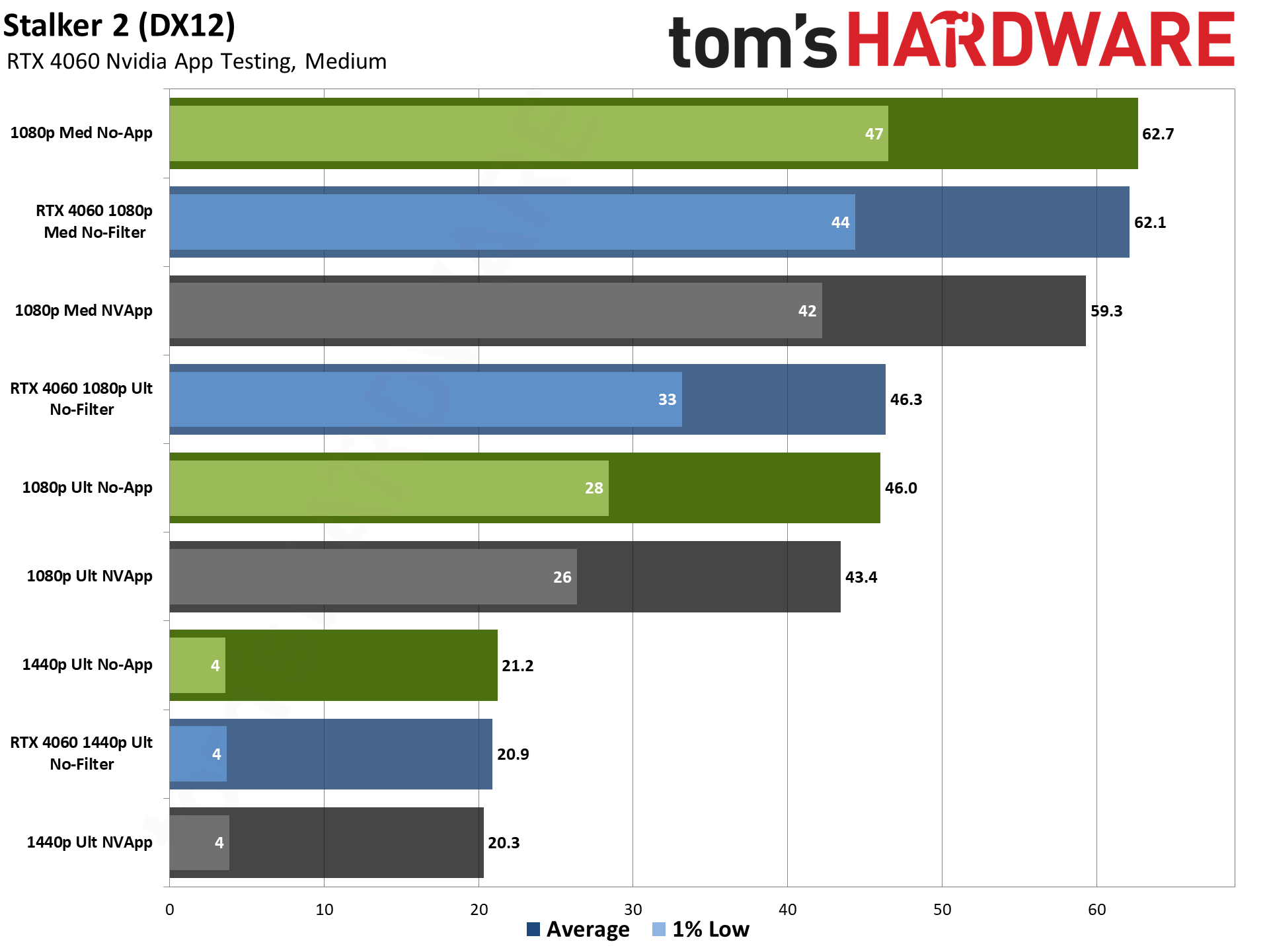
In all the games we checked, not having the Nvidia App installed improved performance. We sort of expected 1080p medium to show the largest delta, as that's more of a CPU-limited scenario, but the performance hit was mostly independent of the settings and resolutions we tested. Some games showed a smaller hit to performance, others larger, and of course we're only talking about one set of hardware tested. But it's clear there's a problem with performance being reduced by a not-insignificant amount.
Some people have opined that Unreal Engine 5 games are the most affected, but by our numbers, the biggest loser was Assassin's Creed Mirage, which dropped by 9% at 1080p medium, 12% at 1080p ultra, and 6% at 1440p ultra. Stalker 2 lost around 6% as well (ignoring the 1440p ultra result where VRAM is a clear problem), while Black Myth: Wukong 'only' dropped by about 2–6 percent. Baldur's Gate 3, a DirectX 11 game, saw a 3–4 percent hit, and Flight Simulator 2024 lost 6% at 1080p as well.
It's a safe bet that the performance loss will vary with different CPUs and GPUs, though without further testing, we can't say precisely how much. At least one user reported up to a 15% performance loss in Black Myth: Wukong when testing an RTX 4080 Super paired with a Ryzen 7 9800X3D, so it could be that higher-performance GPUs are even more impacted.
We reached out to Nvidia for comment, and they got back to us late in the day. As you can read in the update at the top, the root cause appears to be related to the Game Filters and Photo Mode being enabled, whether or not any filters are actually active. Disabling that options fixes the performance loss (if you're not using either feature). Alternatively, if you don't need the extra features the App offers, you can do a clean driver install and skip the Nvidia App for now. We assume there will be a more permanent fix that doesn't require disabling these features with a future driver.







